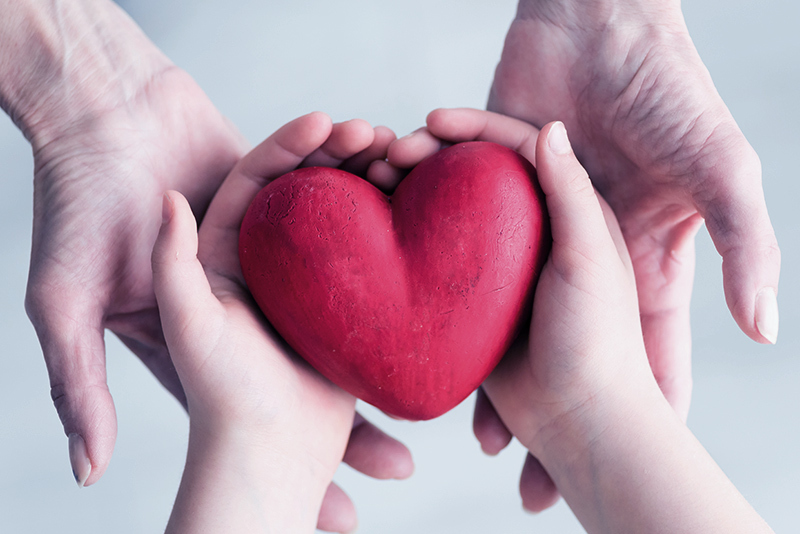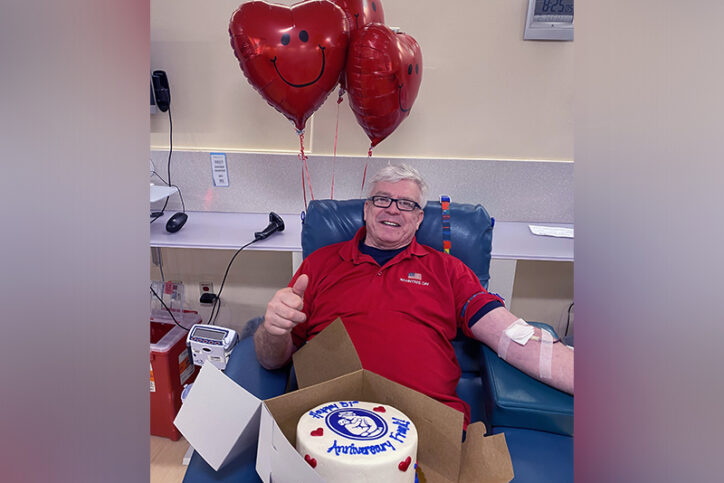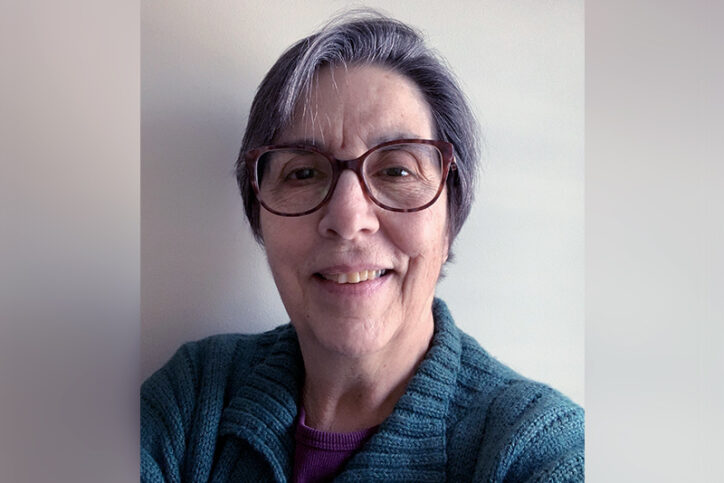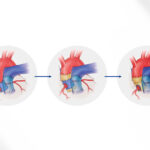Letters from the heart: “Life will be better”

Children with congenital heart disease (CHD) have much to think about as they undergo tests, try medications, and face possible surgery. These adults know what that’s like. To celebrate National Heart Month, here are their words of encouragement.
Frank Collins, 63
I loved basketball as a kid, but when I played I would get tired before anyone else. When I was 7, I was diagnosed with a heart murmur. After some delays, I had surgery at Boston Children’s Hospital just two days after my 10th birthday. I knew if I had surgery, I could do the things I saw other kids doing and that I desperately wanted to do.

I remember looking up at the anesthesiologist putting the mask over my face. That was it. I was out. Almost 10 hours later, I had a temporary drainage tube in my chest. When I finally opened my eyes, my mom and dad had big smiles on their faces. I then saw a picture of a puppy taped to the guardrails of my bed. It was my gift: Schnitzel, a girl beagle I would have for 13 years.
I finally kept up with the best of them. I restarted basketball and played semi-pro softball into my 30s. I was in the Air Force, Navy Reserve, and Air National Guard. I worked as a commercial airline mechanic and construction machine mechanic, while also at one point renovating my house. And I was a full-time father to Jordan, who is now 30. I like to say there is nothing wrong with Frank Collins’ heart.
Knowing what I know about Boston Children’s, your parents brought you to the best place. Have faith in your doctors. Know that getting you fixed is their number one goal. And you should have special goals. If your condition is holding you back, this treatment will get you to where you will no longer be held back. You’ll want to get through this, so do what they tell you, and you’ll get better.
Fran Sansalone, 75
I was born with tetralogy of Fallot. Congenital heart disease right from birth is just the life you live. You grow up accepting it while learning about it. It wasn’t until I entered school and couldn’t take gym that I realized I was different. I had to sit on the sidelines.

I had six cardiac catheterizations before high school. In those days, a patient was awake with minimal anesthesia. I finally had my first heart surgery at 19, and another one in my early 20s. After a few checkups, I didn’t see a cardiologist for decades. I felt good and I moved on. Then in 2001, I read about a Boston Children’s research project on tetralogy of Fallot, and that’s what led me to become a patient in the Boston Adult Congenital Heart (BACH) Program. When I come in for annual checkups, I sit in a waiting room with children.
I want those children — and any other young person with CHD— to know that life will be better. After treatment, I hope this piece of your life will disappear or be modified. I can’t say it will be perfect, but it will likely be better. Another thing: I always liked what Mr. Rogers said, “I like you just the way you are.” It’s a valuable message to give any child. But a child with CHD might look at the rest of the world and feel deficient in comparison. It’s easy to think everyone else has got their act together or is a superstar — it’s easy to feel deficient in comparison. Guess what? Not true. Just like Mr. Rogers said, “I like you just the way you are.”
Learn more about the Benderson Family Heart Center, Boston Adult Congenital Heart (BACH) Program, or book an appointment.
Related Posts :
-

First-of-its-kind pressurization test could improve Ross procedure outcomes
The Ross procedure is a preferred surgery to treat severe aortic valve disease. The procedure replaces the failing valve ...
-

Four things you should know about MAPCAs treatment
As the first grandchild in her family, Hannah Homan is in demand for frequent visits. She was also the focus ...
-

Treating MAPCAs with unifocalization surgery and cardiology care
Children born with a rare form of tetralogy of Fallot (ToF) face a challenging type of congenital heart ...
-

After surgeries to treat HLHS, Carter is healthy and happy at home in Florida
Carter Miller loves action. The 4-year-old Florida resident enjoys riding on golf carts and flying high on swing sets. ...





